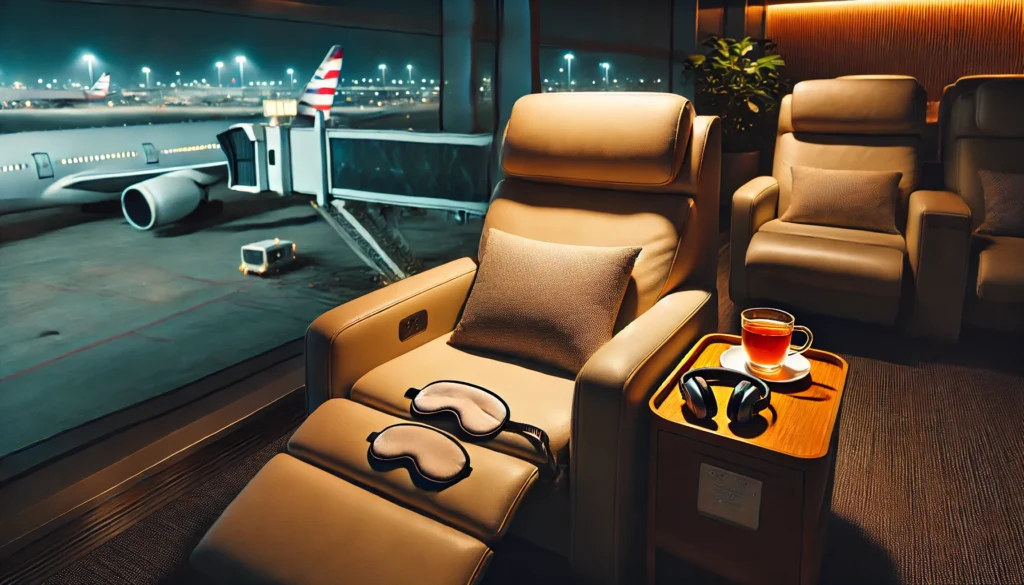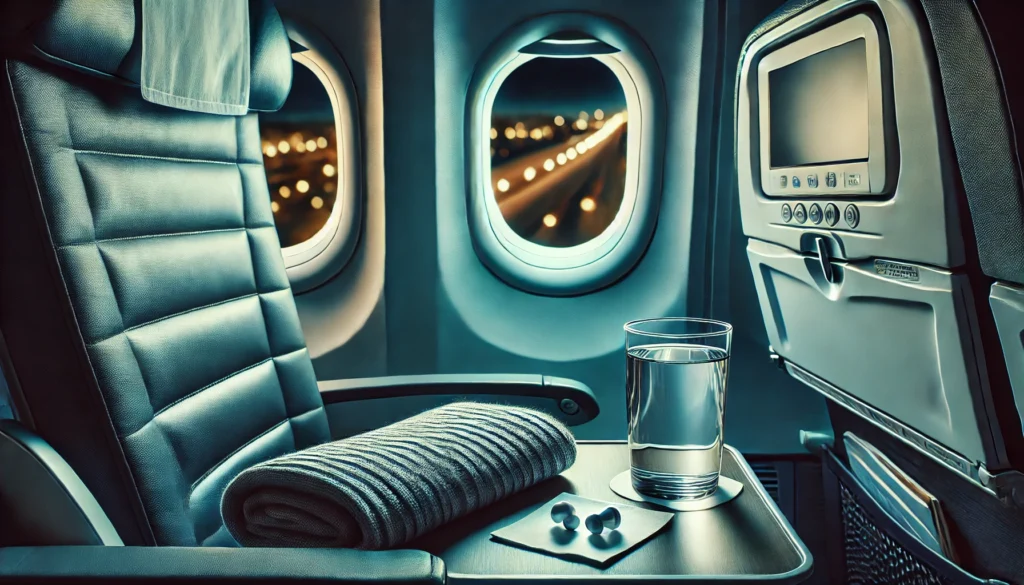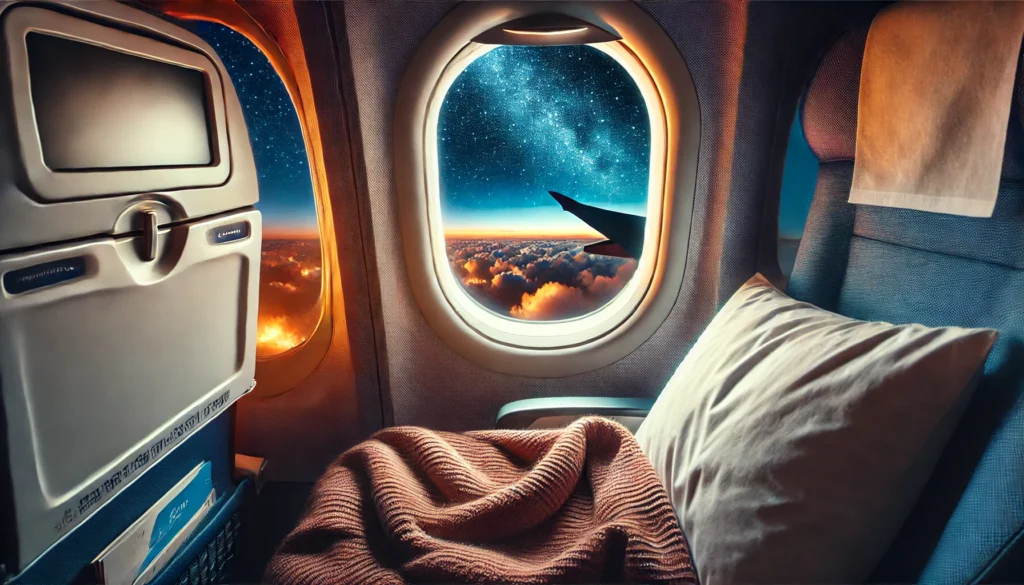Long flights can be taxing on the body, often resulting in fatigue, irritability, and disrupted sleep patterns. For many travelers, finding a way to ensure restful sleep on an airplane is essential for arriving at their destination feeling refreshed and ready to tackle new adventures. This guide explores various sleep medications that can aid in achieving a restful journey across time zones, offering insights into the best medicine to sleep on a plane and providing practical advice on their usage.
You May Also Like: Essential Vitamins for Better Sleep Quality
Understanding Sleep Medications
Before diving into the specifics of sleep medications suitable for flights, it’s crucial to understand what these medications do. Sleep medications, often referred to as hypnotics or sedatives, are substances that induce sleep or help maintain it. They work by altering the chemicals in the brain responsible for sleep regulation, such as gamma-aminobutyric acid (GABA).
The Science Behind Sleep Medications
Sleep medications are designed to influence neurotransmitters in the brain. Gamma-aminobutyric acid (GABA) is a key neurotransmitter targeted by many sleep aids. By enhancing GABA’s activity, these medications can promote relaxation and help initiate sleep. Understanding the interaction between neurotransmitters and medications aids in selecting the most appropriate option for individual needs.
Categories of Sleep Medications
Sleep medications can be divided into several categories, each with unique properties and uses:
- Antihistamines: Commonly found in over-the-counter (OTC) sleep aids, these work by blocking histamine receptors in the brain, leading to drowsiness. They’re easily accessible and widely used for short-term sleep issues.
- Benzodiazepines: Prescription medications that enhance the effect of GABA, leading to sedation. They are typically used for short-term management of insomnia but are not recommended for long-term use due to the risk of dependency.
- Non-Benzodiazepine Hypnotics: Often referred to as “Z-drugs,” these are newer sleep medications that also target GABA receptors but with a different chemical structure than benzodiazepines. They are considered less habit-forming but still require careful use.
- Melatonin Receptor Agonists: These mimic the action of melatonin, a hormone that regulates sleep-wake cycles, and are often used for jet lag. They are generally well-tolerated and can be a good option for those seeking a more natural approach.
- Orexin Receptor Antagonists: A newer class of sleep medications that block the activity of orexin, a neurotransmitter involved in wakefulness. These drugs are promising for those who struggle with staying asleep.
How Sleep Medications Are Administered
Sleep medications can be administered in various forms, including pills, liquids, and even sublingual tablets. The method of administration can impact the onset and duration of the medication’s effects. For instance, sublingual tablets dissolve under the tongue and may work faster than traditional pills. Understanding these differences can help travelers choose the best option for their needs.

Best Sleeping Pills for Flights
When it comes to selecting the best sleeping pills for flights, several factors need to be considered, including duration of the flight, potential side effects, and individual health conditions. Here are some popular options:
Over-the-Counter Options
- Diphenhydramine (Benadryl): As an antihistamine, diphenhydramine is widely used for its sedative properties. It’s easily accessible and can help induce sleep on shorter flights. However, it may cause drowsiness upon arrival, so timing is crucial.
- Doxylamine (Unisom): Another antihistamine that is often used in OTC sleep aids. It is similar to diphenhydramine but may have a longer-lasting sedative effect. This makes it suitable for longer flights where extended sleep is desired.
- Melatonin: As a natural supplement, melatonin can help regulate sleep-wake cycles, making it particularly useful for combating jet lag on long-haul flights. It is less likely to cause the groggy feeling associated with some other sleep aids.
Prescription Options
- Zolpidem (Ambien): A popular non-benzodiazepine hypnotic, zolpidem is effective for inducing sleep but should be used with caution due to potential side effects such as sleepwalking. It is best suited for those who do not have a history of complex sleep behaviors.
- Lorazepam (Ativan): A benzodiazepine that is effective in managing anxiety and inducing sleep. It is particularly useful for those who experience flight-related anxiety, providing both relaxation and sedation.
- Eszopiclone (Lunesta): Another non-benzodiazepine hypnotic, eszopiclone is known for its longer duration of action, making it suitable for longer flights. It is generally well-tolerated but should be used as directed to avoid next-day impairment.
Factors to Consider When Choosing
When choosing a sleep aid, consider factors such as the length of the flight, your personal health history, and any potential interactions with other medications you may be taking. Consulting with a healthcare provider can help navigate these considerations to ensure safe and effective use.
Practical Considerations and Safety
Dosage and Timing
When using sleep medications, it’s important to consider the timing and dosage. Taking a sleep aid too late into the flight can result in grogginess upon arrival, while an excessive dose may lead to prolonged sedation. It is advisable to start with the lowest effective dose and adjust as necessary based on previous experiences.
Potential Side Effects
Sleep medications can have side effects such as dizziness, dry mouth, and dependency. It’s advisable to test the medication prior to travel to see how your body reacts. Some individuals may experience more intense side effects, so monitoring your body’s response is crucial for safe use.
Long-Term Use and Dependency Risks
While occasional use of sleep medications is generally safe, long-term use can lead to dependency and tolerance. It’s important to use these medications sparingly and to explore non-pharmacological options for managing sleep issues, particularly for frequent travelers.
Consult with a Healthcare Provider
Before using any sleep medication, especially prescription options, consulting with a healthcare provider is essential. They can provide guidance based on your health history and the nature of your travel. A healthcare professional can also help identify any potential interactions with other medications you may be taking.

Alternatives to Sleep Medications
While sleep medications can be helpful, there are non-pharmacological strategies that can also promote sleep on flights:
Creating a Sleep-Conducive Environment
- Noise-Canceling Headphones and Eye Masks: Blocking out noise and light can create a conducive environment for sleep. These tools can significantly reduce disturbances from the surrounding environment.
- Comfortable Travel Pillows and Blankets: Enhancing physical comfort can aid in achieving restful sleep. Investing in quality travel accessories can make a substantial difference in sleep quality during flights.
- Adjusting Seating Arrangements: When possible, choosing a window seat can reduce disturbances from fellow passengers and provide a more stable sleeping position.
Relaxation Techniques
- Deep Breathing and Meditation: Deep breathing, meditation, or listening to calming music can help relax the mind and body. Practicing these techniques regularly can improve their effectiveness.
- Progressive Muscle Relaxation: A technique that involves tensing and relaxing muscle groups in a systematic way, promoting relaxation and sleep readiness.
- Visualization and Guided Imagery: Engaging the mind in calming and positive imagery can help distract from stressors and facilitate sleep.
The Role of Diet and Hydration
- Hydration: Staying hydrated, while avoiding excessive caffeine and alcohol, can prevent dehydration and promote comfort. Both dehydration and alcohol can negatively impact sleep quality.
- Light Meals Before Flights: Eating a light meal before the flight can prevent discomfort and aid in better sleep. Heavy meals may cause indigestion, which can disrupt sleep.
- Herbal Teas: Herbal teas such as chamomile or valerian root can have calming effects and may promote sleep without the need for medication.
Future Trends in Sleep Aids for Travel
The landscape of sleep aids is continuously evolving, with research focusing on more targeted and efficient solutions. Advances in personalized medicine may lead to sleep aids tailored to an individual’s genetic makeup, minimizing side effects and maximizing efficacy. Additionally, wearable technology that monitors and promotes sleep on flights is on the horizon, promising a more integrated approach to sleep management during travel.
Personalized Medicine
The future may hold the promise of personalized sleep aids, designed to work with an individual’s unique genetic profile. This could mean more effective treatment options with fewer side effects, tailored specifically for the traveler’s needs.
Wearable Technology
Innovations in wearable technology are making it possible to monitor and improve sleep quality in real-time. Devices that track sleep patterns and provide feedback can help travelers make adjustments to optimize their rest during flights.
Smart Cabin Designs
Airlines are exploring smart cabin designs that enhance sleep quality, incorporating elements like adjustable lighting, noise reduction, and improved seating comfort. These innovations aim to provide a holistic approach to sleep management in-flight.

Conclusion
Navigating the world of sleep medications for long flights requires a balanced understanding of available options and their implications. By considering individual needs, potential side effects, and practical alternatives, travelers can make informed decisions that enhance their flying experience. Whether opting for OTC solutions or consulting a healthcare provider for prescription options, achieving restful sleep on a plane is within reach, paving the way for a refreshed and vibrant arrival at any destination.
Further Reading:
Here’s How You Can Sleep Better on Planes
16 Expert Tips for Falling Asleep on a Plane Fast
Sleeping on long-haul flights: Here are the top tips for snoozing in the sky
Important Note: The information contained in this article is for general informational purposes only, and should not be construed as health or medical advice, nor is it intended to diagnose, prevent, treat, or cure any disease or health condition. Before embarking on any diet, fitness regimen, or program of nutritional supplementation, it is advisable to consult your healthcare professional in order to determine its safety and probable efficacy in terms of your individual state of health.
Regarding Nutritional Supplements Or Other Non-Prescription Health Products: If any nutritional supplements or other non-prescription health products are mentioned in the foregoing article, any claims or statements made about them have not been evaluated by the U.S. Food and Drug Administration, and such nutritional supplements or other health products are not intended to diagnose, treat, cure, or prevent any disease.


